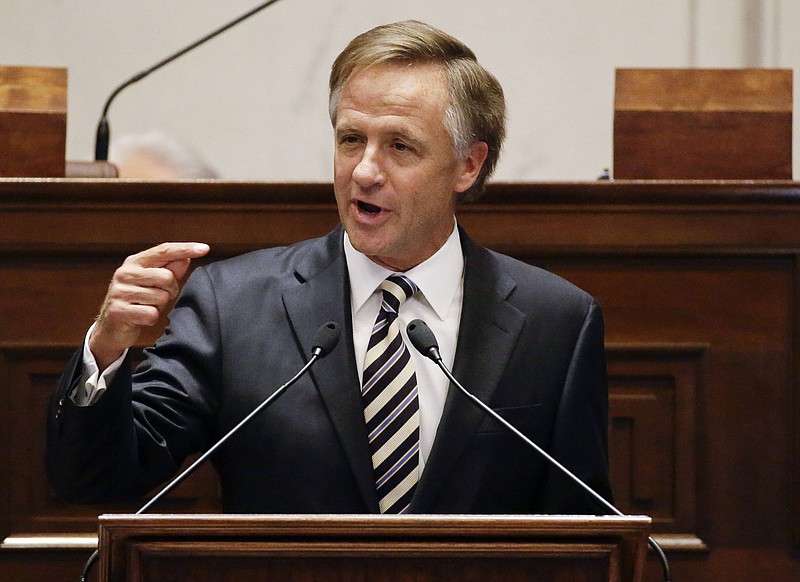NASHVILLE -- Republican Gov. Bill Haslam's administration has been sued for refusing to release a state-commissioned study of state business tax collections and other documents used to develop the governor's proposed overhaul of corporate taxes.
Attorney Brett Carter, a Nashville-based corporate tax attorney, filed the suit on Wednesday in Davidson County Chancery Court, saying he has been stymied in obtaining information from Finance and Administration Commissioner Larry Martin's office.
It's a "willful" violation of Tennessee's Open Records Act, Carter's complaint says.
At the center of the legal action is Carter's efforts to obtain what officials described as a $350,000 study of the state's volatile business franchise and excise tax collections.
The lawsuit comes as House and Senate committees prepare to consider next week Haslam's proposed Revenue Modernization Act, which grew out of the study.
Asked for comment, Lola Potter, a Martin spokeswoman, said that "due to pending litigation, it wouldn't be appropriate to comment at this time."
The bill makes various changes to franchise and excise taxes. For example, it makes computer software that is remotely accessed and used by customers -- including video games and software products -- subject to state sales taxes.
An d it creates incentives for distributors to locate operations in Tennessee.
When announcing the legislation during his State of the State address last month, the governor cited the aid of "outside experts" and said it would also help "level the playing field" between in-state and out-of-state companies.
The administration has said it would generate $14 million in new revenue for the state in the budget taking effect July 1.
Actually, it would raise $17.19 million that year and another $36.17 million in the second year, according to a legislative analysis. Local governments would see $7 million.
By fiscal year 2018-2019, the changes would generate $45.48 million annually for the state.
The study arose from concerns over huge losses last year in franchise and excise taxes, which respectively are corporate income and property taxes. The governor and administration officials initially sought to brush that off as natural volatility in the taxes.
Carter is co-chair of the state and local tax practice group at the Bradley Arant Boult Cummings law firm, and wants a judge to compel the state to disclose details.
After first claiming they had never seen Carter's request, the department's chief legal counsel eventually told him there wasn't a report, the suit says.
"The fact that no report was produced for a $350,000 tax study is counterintuitive and inconsistent with reasonable practices of efficient state government," Carter's complaint states.
The complaint says administration officials also claim the information is protected by "tax administrative information made confidential by law."
Carter contends the claim has no merit, arguing nothing is being administered at this point. It's simply a bill under consideration.
"The tax study was the basis for drafting the Revenue Modernization Act," the complaint states. "Thus, the study did not involve any administration."
Contact staff writer Andy Sherat asher@timesfreepress.com or615-255-0550.

